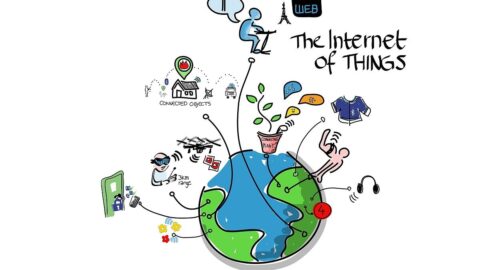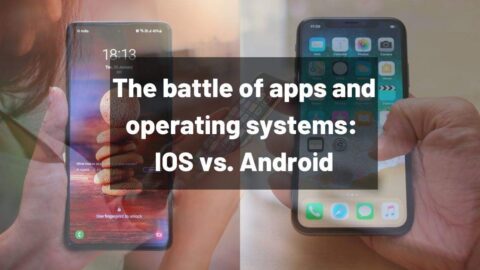Revolutionizing the Way We Drive: Exploring the Latest Advances in EV Charging Technology
Electric Vehicle (EV) charging technology refers to the systems and processes used to charge electric vehicles. With the rapid increase in popularity of electric vehicles as a clean energy solution, the need for efficient and effective EV charging technology is more critical than ever. This technology is essential to support the transition to clean energy, reduce greenhouse gas emissions, and improve air quality in urban areas.
Table of Contents
EV charging technology refers to the methods and systems used to charge electric vehicles (EVs). EVs rely on batteries to store energy, which is used to power the vehicle’s electric motor. To recharge the battery, EVs need to be connected to a charging station or other charging infrastructure.
There are different types of technologies available, depending on the charging speed and the level of power required. Here are the most common types of EV charging technologies:
Level 1 Charging:
This is the slowest type of charging. It is using a standard 120-volt household outlet. Level 1 charging is typically for overnight charging at home and provides around 3-5 miles of range per hour of charging.
Level 2 Charging:
This type of charging uses a 240-volt outlet and provides faster charging speeds than Level 1. Level 2 charging stations are typically found in public charging locations. Such as parking garages, shopping centers, and workplaces. They can provide around 10-25 miles of range per hour of charging.
DC Fast Charging:
Also known as Level 3 charging, DC fast charging provides the fastest charging speeds and can provide up to 80% of the battery’s capacity in as little as 30 minutes. DC fast charging stations are typically found along highways and major travel routes, and they use a high-powered DC charger to rapidly charge the battery.
Latest Advances in EV Charging Technology
Electric vehicle charging technology has seen significant advancements in recent years, with the introduction of several innovative solutions that aim to improve charging times, efficiency, and sustainability. Here are some of the latest advances in EV charging technology:
Wireless Charging Technology
This innovative technology eliminates the need for cables and plugs, making the charging process simpler and more convenient. Wireless charging uses electromagnetic induction to transfer energy from a charging pad to a receiver coil inside the EV. While wireless charging is slower than cable-based charging, it offers greater flexibility, convenience, and safety, as it eliminates the need for physical contact between the charging port and the charging station.
Ultra-fast Charging Technology
Ultra-fast charging stations are designed to deliver a high amount of energy to the EV battery in a short amount of time. These stations can charge an EV battery up to 80% in under 30 minutes, making long-distance travel more feasible and convenient. The latest ultra-fast charging technology uses high-power chargers that can deliver up to 350 kW of power, significantly reducing charging times.
Bidirectional Charging Technology
Bidirectional charging technology allows EVs to not only consume energy from the grid but also return energy back to the grid. This technology enables EVs to act as energy storage units, making them an integral part of the power grid. Bidirectional charging is particularly useful during peak demand hours. As it enables EVs to supply energy back to the grid, thereby reducing the strain on the grid.
Solar-powered Charging Stations
Solar-powered charging stations use solar panels to generate clean energy that can be used to power EV charging stations. This technology is environmentally friendly and reduces reliance on the grid, making it an excellent option for remote locations where grid power is not readily available. Additionally, solar charging stations can work with battery storage systems. This is allowing for 24/7 access to clean energy.
Smart Charging Technology
Smart charging technology uses data and communication technologies to optimize the charging process. This technology can monitor the state of the grid, EV battery capacity, and user preferences to determine the optimal charging strategy. Smart charging technology can also facilitate vehicle-to-grid communication, enabling EVs to send data back to the grid, and receive instructions on when and how to charge.
Implications of Advances in EV Charging Technology

The rapid development of EV charging technology has significant implications for the environment, economy, and future of transportation.
EVs are already a greener transportation option than traditional gasoline-powered cars. However, EV charging technology can further reduce carbon emissions by increasing the efficiency and sustainability of the charging process. Using renewable energy sources such as solar power for EV can significantly reduce the carbon footprint of EVs. Additionally, smart charging technology can optimize charging patterns to minimize energy waste, further reducing emissions.
The growth of the EV industry presents significant economic opportunities. According to a report by the International Energy Agency, the market for EV charging infrastructure is expected to reach $1.5 trillion by 2040. The expansion of the EV charging industry is also creating job opportunities in fields such as manufacturing, installation, and maintenance of charging stations. Additionally, the adoption of EVs and EV charging technology can help reduce reliance on foreign oil imports, strengthening energy security
Advances in EV charging technology are opening up new possibilities for the future of transportation. Bidirectional charging technology has the potential to transform EVs into energy storage units. This is allowing them to provide electricity to the grid during peak demand hours. This technology could revolutionize the power grid. And making it more flexible and responsive to fluctuations in demand. Additionally, wireless charging technology could enable EVs to charge while driving, eliminating the need for frequent stops to refuel.
Conclusion
The latest advances in EV charging technology offer significant benefits for the environment, the economy, and the future of transportation. Technologies such as wireless charging, ultra-fast charging, bidirectional charging, solar-powered charging stations, and smart charging systems are making electric vehicles more accessible, convenient, and sustainable than ever before. These technologies can significantly reduce carbon emissions. AND create new job opportunities, and reduce reliance on foreign oil imports.
Furthermore, they have the potential to revolutionize the way we think about energy storage and the power grid. They are enabling electric vehicles to act as energy storage units. And supply power back to the grid during peak demand hours. While there are still challenges to overcome, such as the cost and availability of charging infrastructure, the future looks bright for this technology. Because it continues to evolve and improve. With continued investment in research and development, we can expect to see even more innovative solutions that will further accelerate the transition to a sustainable future.
Steve Rogers is an accomplished and dynamic content writer with an insatiable curiosity to expand his knowledge and expertise. Armed with a potent blend of experience, creativity, and a profound passion for digital marketing, writing, and ecology, Steve has carved out a niche for himself as a knowledgeable and respected authority in his field. His unwavering commitment to excellence has inspired him to share his wealth of knowledge with the world at every opportunity, making him an invaluable resource for any brand looking to maximize its digital content.
Beyond his professional pursuits, Steve’s personal passions include exploring new cultures, forging meaningful connections with diverse individuals, and immersing himself in the beauty of nature. Whether he’s strolling through the woods or enjoying a quiet afternoon at the park, Steve finds solace in the great outdoors, and believes that spending time in nature is the key to unlocking our full potential.










